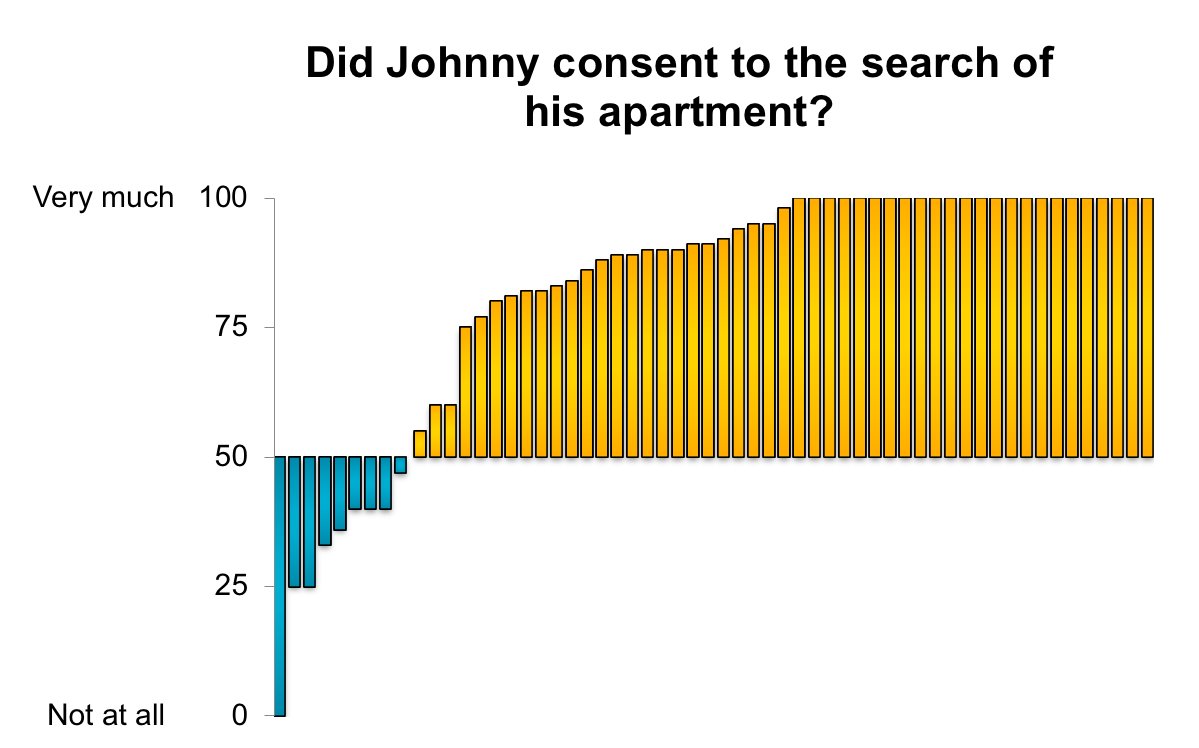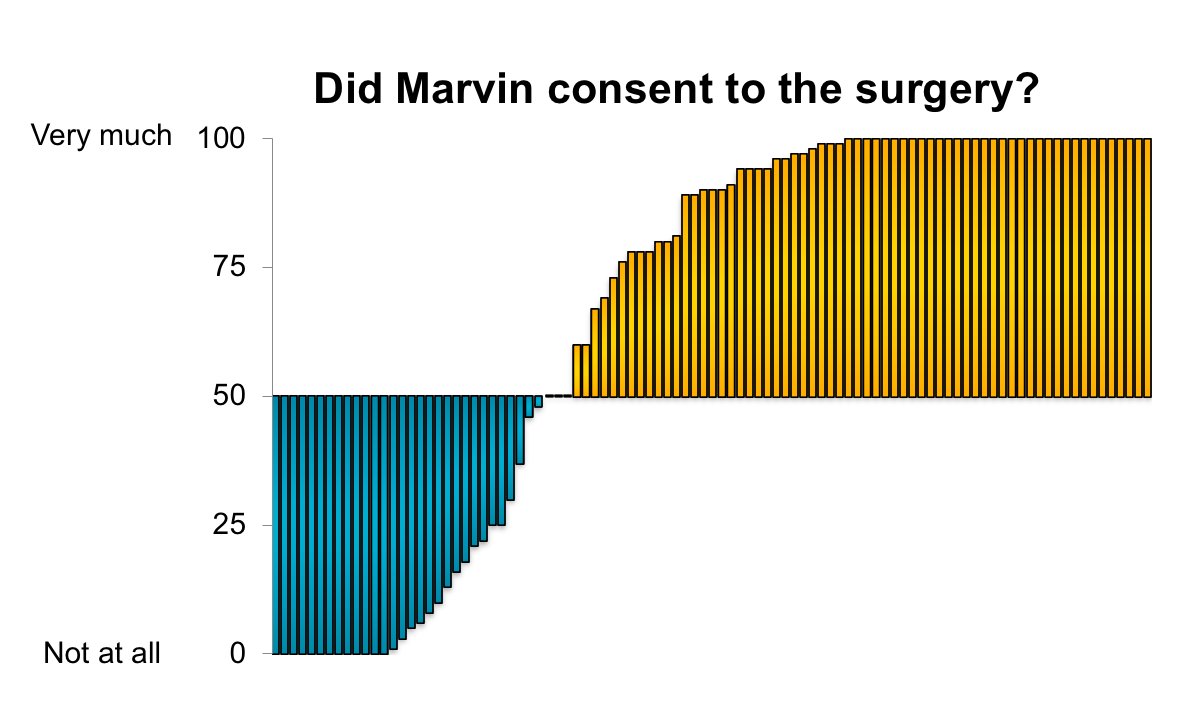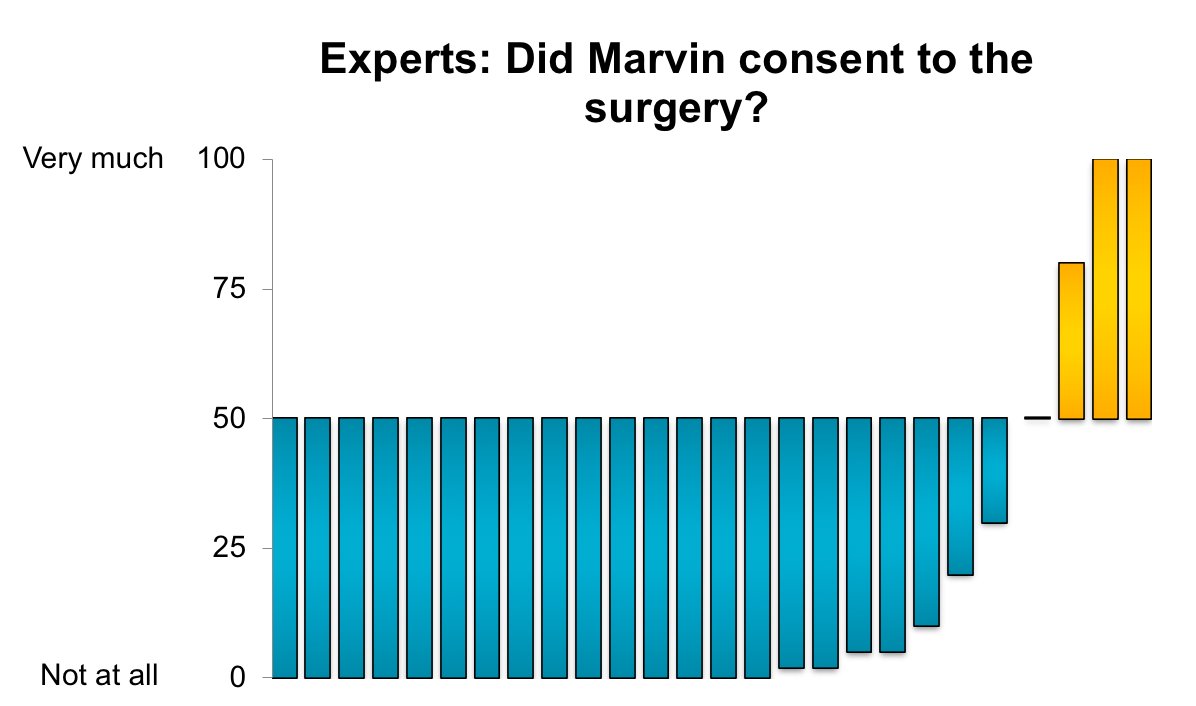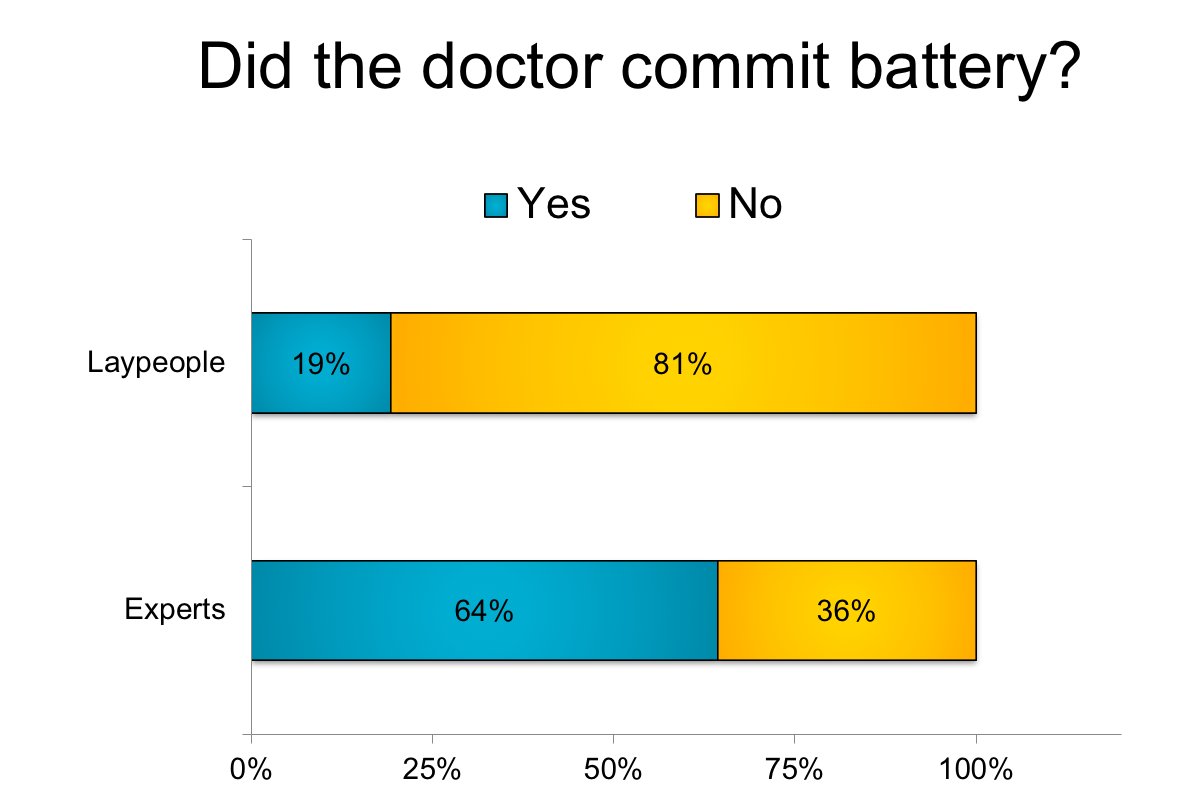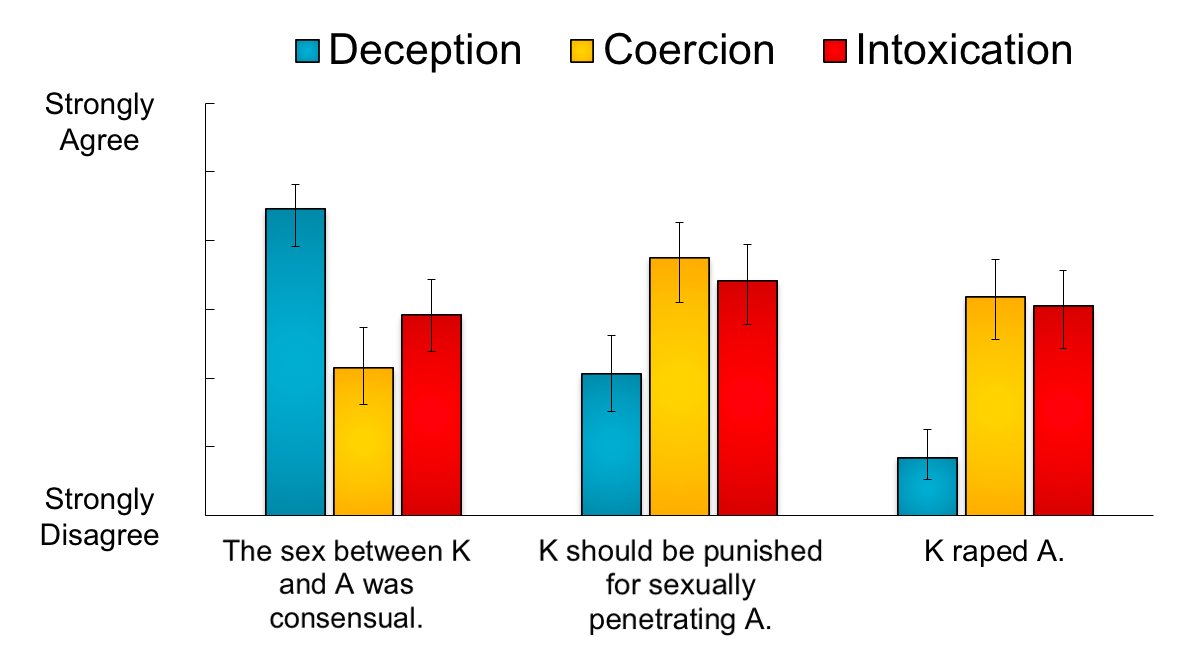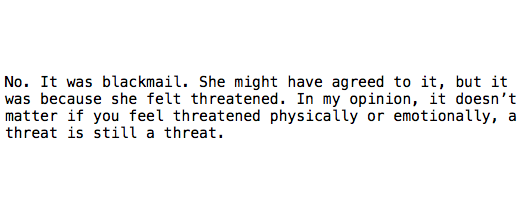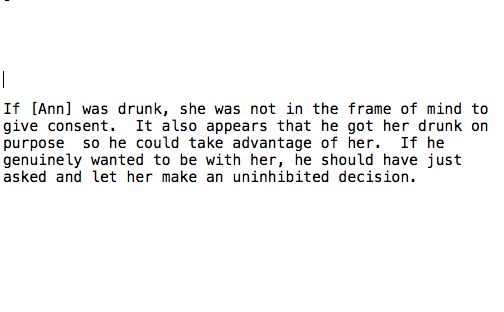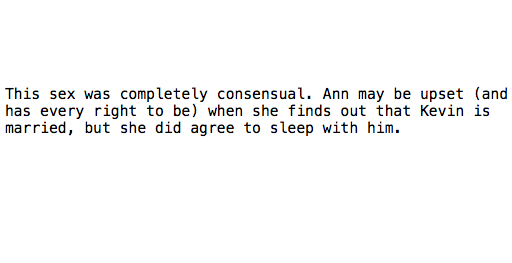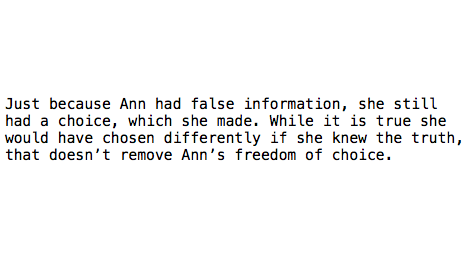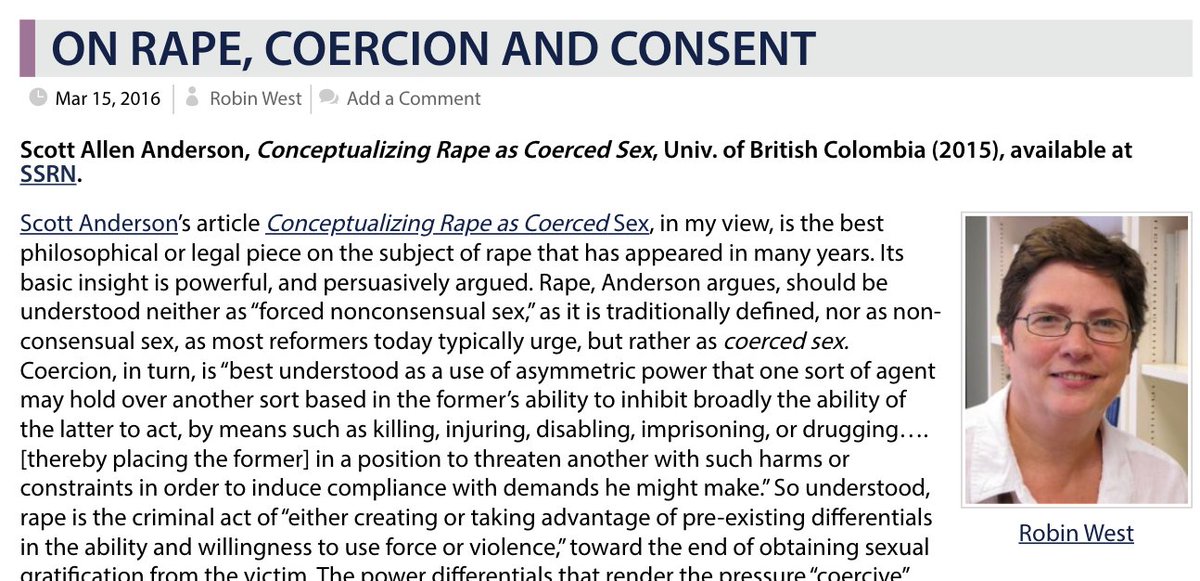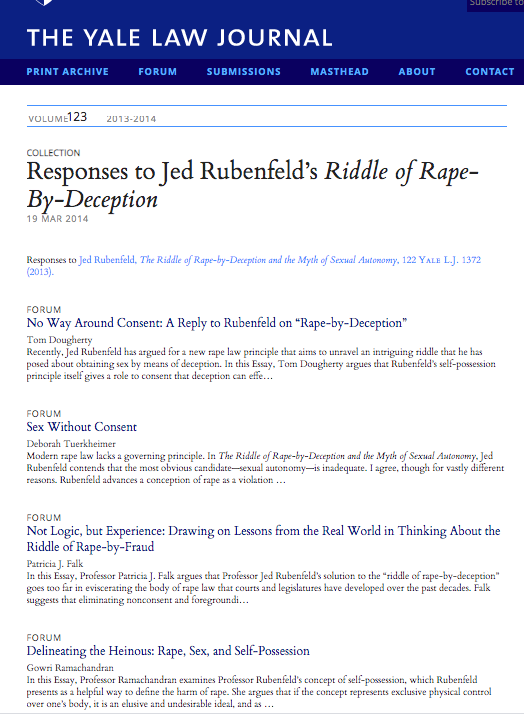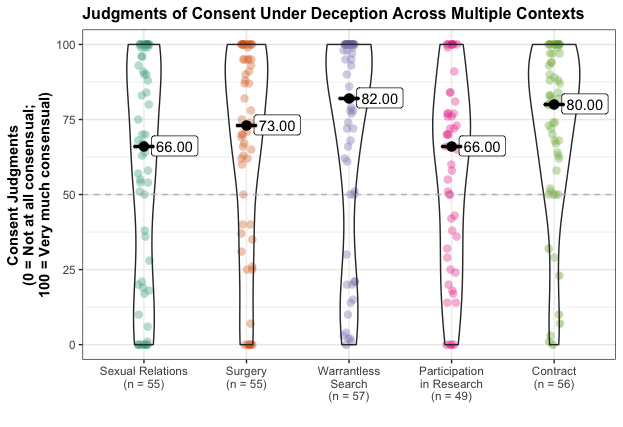At long last, my paper on the folk conception of consent is out in @YaleLJournal! It asks a simple question: Can you consent based on a lie? For most experts, the answer is no. But I find ordinary people feel differently. Let me explain. CW: rape, battery https://www.yalelawjournal.org/article/commonsense-consent
First off, we can all agree that consent requires more than just saying "yes." A “yes” doesn’t count as consent if there is a gun to your head or if you’re under the influence. By the same reasoning, consent also doesn’t count if it’s the product of fraud.
Here’s a case from 1888: a young woman is tricked into sailing to Panama for what she thinks is a job as a governess. In fact, the job that awaits is sex work. Ct says she’s abducted even tho “no actual force” used bc “the law has long considered fraud & violence to be the same”
Same idea: if a rando poses as a doctor and gives you a “medical exam” -- that’s a battery. The fact that you submitted willingly to the exam does not mean you consented. Your cooperation was induced by deception.
My new paper (n > 2000) shows that many laypeople have the opposite intuition to this legal principle (“deception voids consent”). People think you *can* give real, valid consent even when your consent is obtained by intentional, material, bad-faith fraud.
Here’s one scenario I gave to participants: A man lets police officers into his home after they lie about what they’re looking for. Did he consent to the search? Most people say yes.
Here's another: a patient agrees to an elective surgery after telling the doctor he wants it done only if it’ll be covered by insurance. The doctor lies and says it’s covered, knowing the patient will have to pay out of pocket. Did the patient consent? Again, most people say yes
BTW I gave this same scenario out at a conference for health law profs. They say no. Among these experts, the average rating on a scale of 0 (no consent) to 100 (full consent) was 15.54, whereas among laypeople it was 66.60.
And laypeople don’t just say there’s “consent.” They follow through. They treat actions that would normally be wrong/illegal (e.g. slicing into someone’s body with a scalpel) as less so, showing that they think the consent given here is morally meaningful.
So, this is not just a semantic disagreement about the word “consent.” It’s a disagreement about the moral implications of these upfront convos & whether they render permissible behavior that would normally be impermissible (invading property, penetrating bodies)
This isn’t just about people saying there’s “consent” whenever supposed “consent” is verbalized, either. In one experiment, I tested 3 different scenarios where a person says “yes” to sex.
In all 3 scenarios, I presented the same background about the 2 ppl involved. Ann is either deceived by Kevin (he says he’s single after she makes it clear adultery is a dealbreaker), coerced (blackmailed by Kevin), or very drunk (plied w/alcohol by Kevin) and she says yes to sex
Participants read 1 of the 3 scenarios and answered questions: whether the sex was consensual; whether Kevin deserved to be punished for sexually penetrating Ann; whether Kevin raped Ann.
Participants saw little “consent’ when Ann was blackmailed into saying “yes” to sex. They saw little “consent” when Ann drunkenly said "yes."
But when she was *deceived* into agreeing to have sex? They said it was consent. They definitely didn’t view it as a bodily invasion by Kevin or a criminal act
So deception is different. People seem to think you can exercise your free will when you’re being deliberately lied to by the person seeking your consent.
Why does this matter? A couple reasons:
1st: it means there’s a disconnect between the commonsense understanding of consent and the traditional legal understanding. This matters for how juries make decisions, and much more.
Did you know that consent is not defined in 21 states, including 8 states that criminalize sex “without consent”? In each of these states, we might worry that people will rely on their intuitions, which may not align with the legal definition of consent
Second, victims of fraud (disproportionately elderly, low-income, BIPOC, undocumented) are unlikely to seek redress when cheated out of money. I’ve worked with @NCLC4consumers on this issue & we frequently see victims of fraud blame themselves for “consenting” to scammers.
Here’s a quote from one of my survey respondents expressing the same sentiment: yeah I was lied to but I still consented and that’s my fault
BTW @meiravff and I took a deep dive into the psychology behind this in a separate set of studies. We concluded that consumers are unlikely to complain when they are tricked by contractual fine print. https://www.stanfordlawreview.org/print/article/consumer-psychology-and-the-problem-of-fine-print-fraud/
3rd: there’s an important legal debate about whether rape is primarily a crime of violence/force or a crime of nonconsent. Lots of people writing on this question of whether nonconsent alone (unaccompanied by force) is sufficient for criminal liability
Some are concerned about what a consent-based definition would mean for cases of deceptive sex.
Here’s Robin West in a review of Scott Allen Anderson’s article for JOTWELL: “a lot of sex might be nonconsensual that really no one would want to make criminal.” For example, “obtaining sex by lying about one’s intentions or background” https://juris.jotwell.com/on-rape-coercion-and-consent/
Lots of people think it shouldn’t be a crime (let alone rape) when Kevin lies to Ann about being single, knowing that she wouldn’t sleep with him otherwise. Is that an argument against defining rape as “nonconsensual sex”? Some people think so. They say that because deception …
… invalidates consent (according to the standard legal principle), that means that it’d be rape to tell any lie that affects willingness to have sex. For them, that just goes too far. Ergo, consent must not be the only thing that matters—maybe force matters, too.
My research findings show that this conclusion is too hasty. The key insight here is that people think these are actually voluntary sexual encounters. That’s why they think it’d be weird to criminalize them – not because they think rape always requires the use of physical force.
This should be good news for those who think consent is what matters most. The deceptive sex cases have been portrayed as a stumbling block in efforts to define rape as nonconsensual sex. Now we have an explanation for the hang-up, one that’s about psychology, not about force.
So we can make some progress on the so-called “riddle of rape by deception" which has been the subject of much debate (see https://www.yalelawjournal.org/collection/responses-to-jed-rubenfelds-riddle-of-rape-by-deception). It turns out that people have a general intuition that deception doesn’t truly invalidate consent.
Finally, this intuition goes beyond sex. People say the same thing about deceptive surgeries, police searches, contracts, tattoos, and a whole host of nonsexual activities where consent matters. Interesting to think about consent across domains.
I should emphasize that this paper is just the first step in mapping out a folk theory of consent. Lots of ongoing consent research, including studies on coercion, incapacity, manipulation, and nudging.
More details in the article. Read it here: https://www.yalelawjournal.org/pdf/SommersArticle_8cs366qd.pdf
If you’re interested in this topic, there’s lots of great work in this space! E.g. @azbrodsky on nonconsensual condom removal https://papers.ssrn.com/sol3/papers.cfm?abstract_id=2954726, many writing on deceptive sex: @CoreyRYung @kimferzan @JillHasday Susan Estrich. Law & deception: Seana Shiffrin @CassSunstein
I’m particularly indebted to @paulbloomatyale and Gideon Yaffe for getting me started on this topic.
Also, s/o to @scottjshapiro for coining the term “experimental jurisprudence” to describe this kind of work taking an experimental approach to question of law/jurisprudence https://twitter.com/xphilosopher/status/1279049872595922946
Lots of exciting xjur research being done on concepts like reasonableness, proximate cause, free will. https://www.facebook.com/groups/1243606619093434/

 Read on Twitter
Read on Twitter

